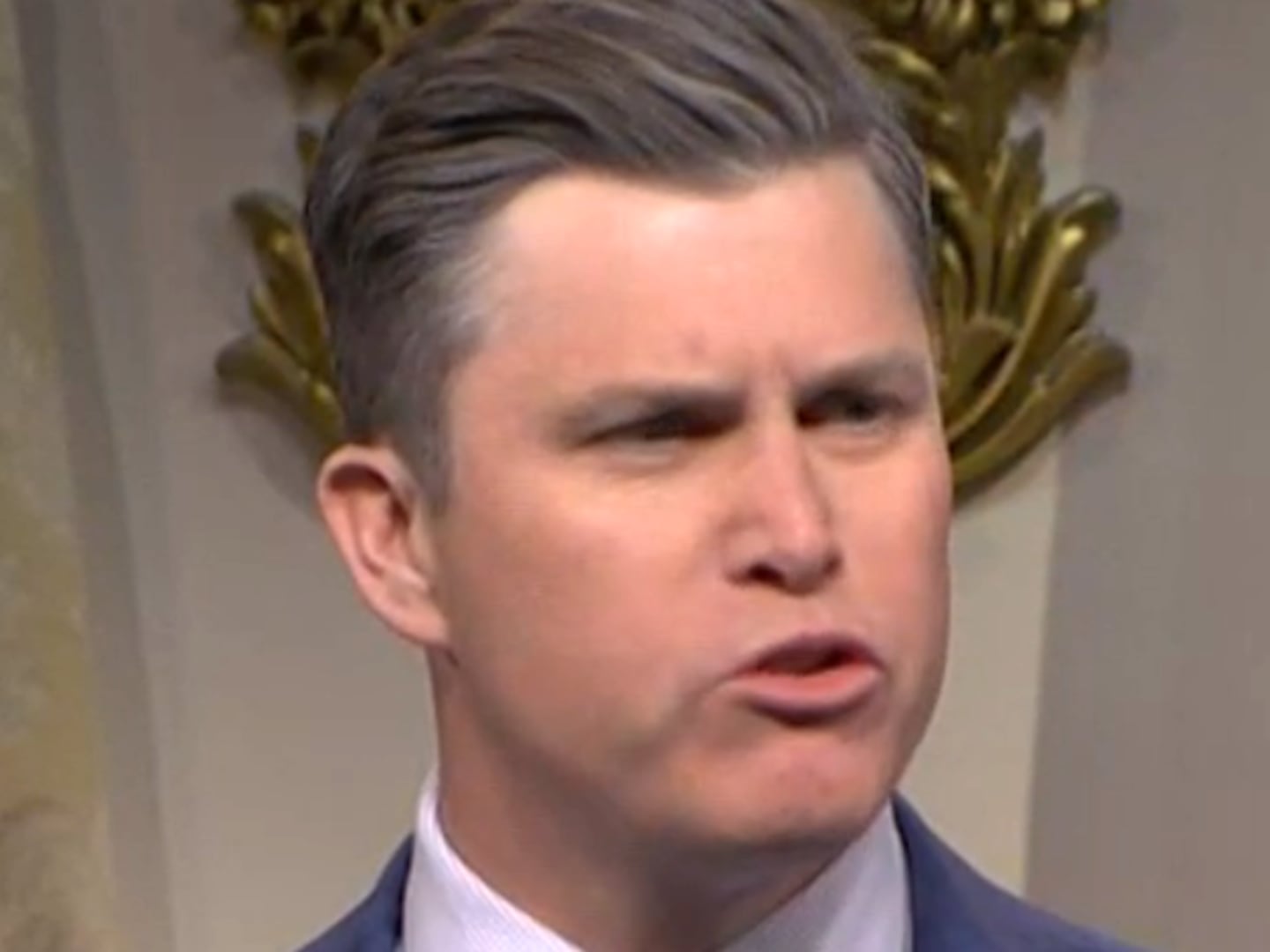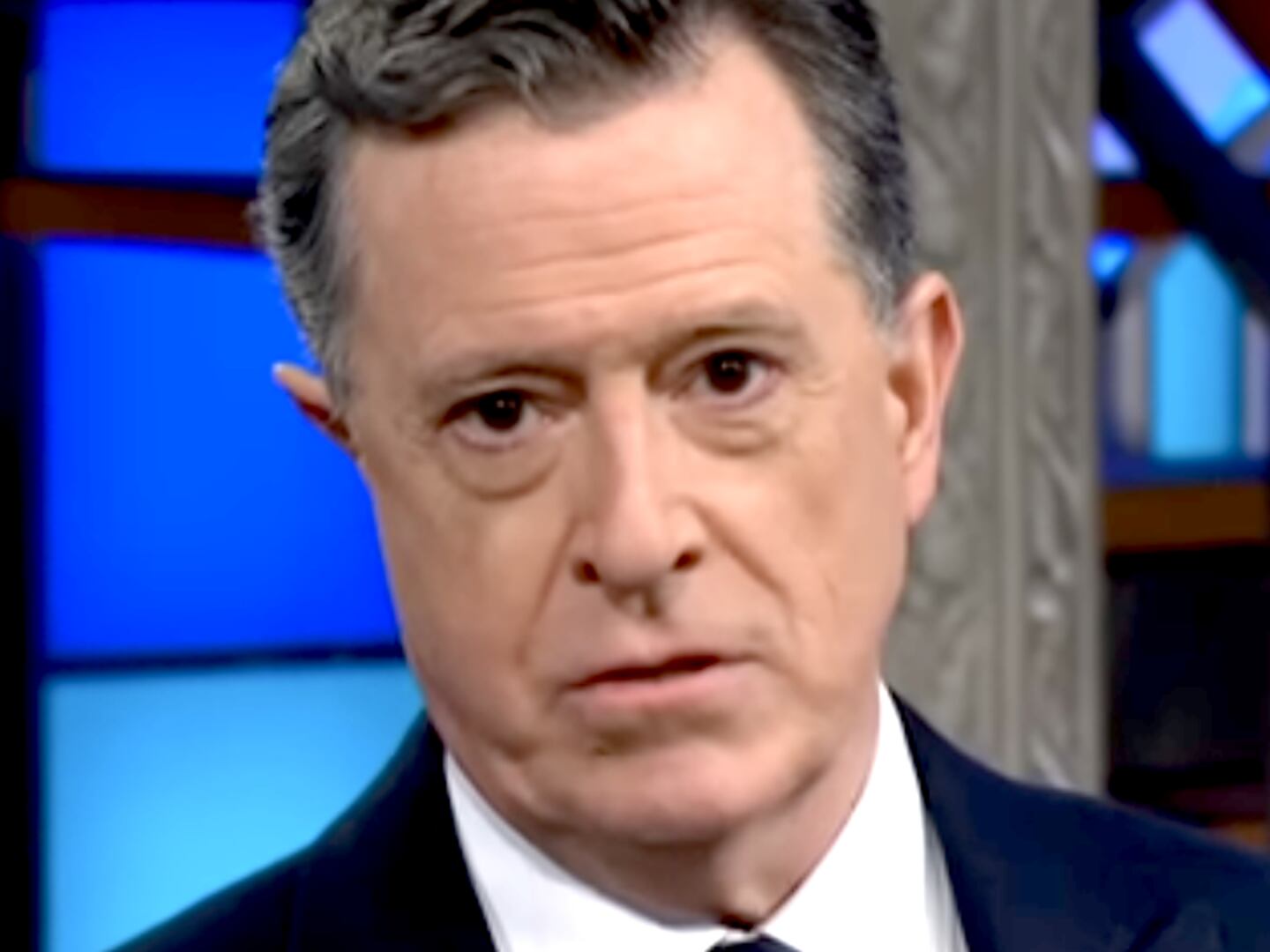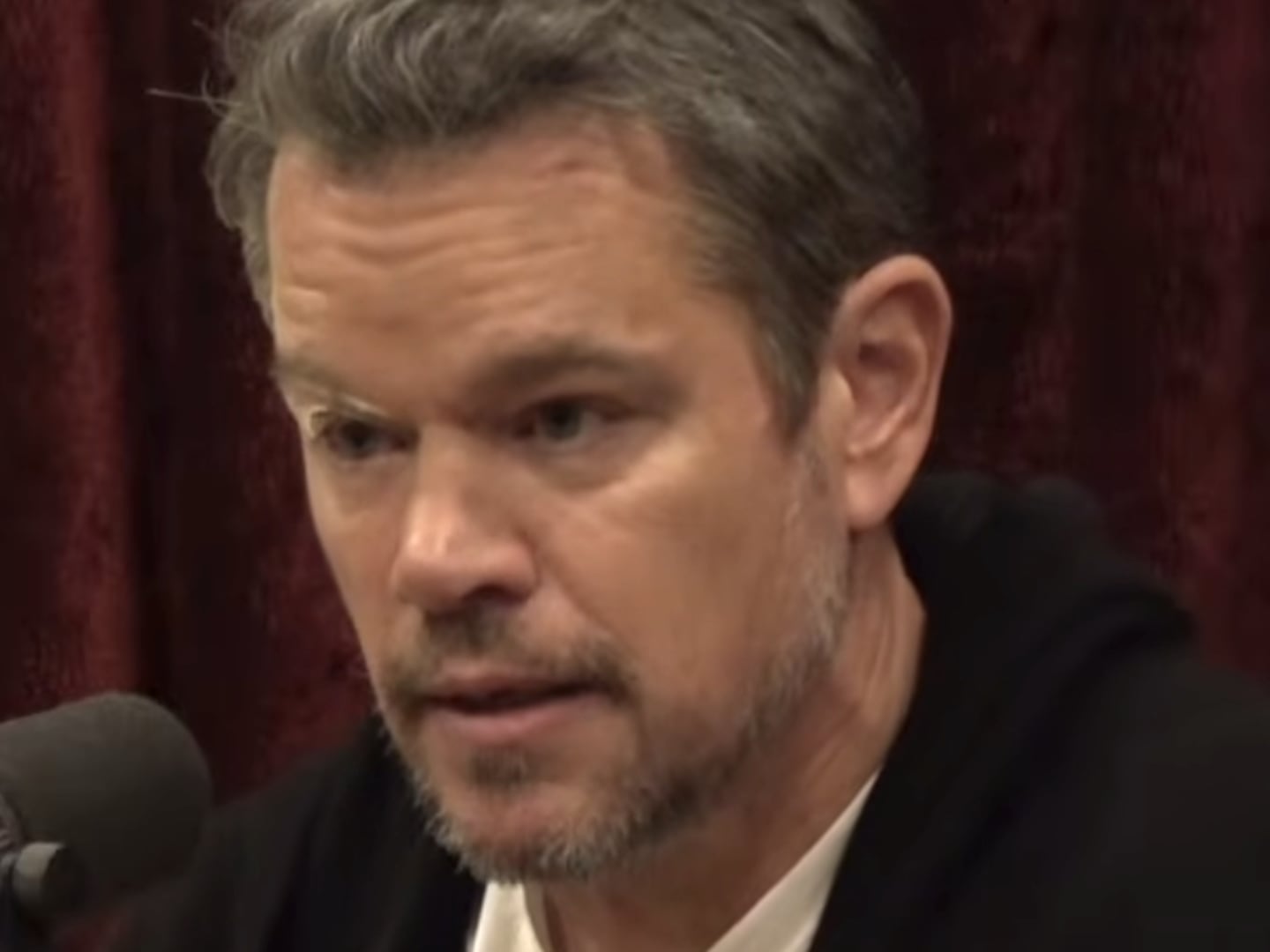When Jonathan Groff met with director Roshan Sethi about a role in the romantic comedy A Nice Indian Boy, he asked Sethi to cast Karan Soni as his love interest. Groff assumed Soni was straight, but he’d seen the Deadpool actor in Sethi’s first movie, 7 Days, and liked his vibe. As it turns out, Groff’s request had already been granted: Not only is Soni gay, but he’s been dating Sethi since 2018. Sethi thought he’d have to work to court Groff—“An independent film needs a famous white person to get made,” he half-jokes—when in actuality Groff was already envisioning the exact film that now exists.
To hear the trio talk about A Nice Indian Boy is to hear tales of kismet and glee (Groff pun intended). “It felt like an emotional throuple,” Soni tells The Daily Beast’s Obsessed, also half-joking. The movie unleashed its charm at the SXSW Film and TV Festival on Tuesday, capping off an intensely personal experience for Sethi and his cast.

A Nice Indian Boy, initially a play by Madhuri Shekar, is built on a meet-cute at a local temple. During prayer, down-on-his-luck doctor Naveen (Soni) catches the eye of a dreamy photographer named Jay (Groff), and soon his wish for romance has been fulfilled. Jay was adopted by an Indian family and immersed himself in their culture, but he’s far more comfortable in his sexuality than Naveen, who avoids introducing Jay to his folks (Zarna Garg and Harish Patel) until they’re engaged. It’s Meet the Parents: Hindu Edition. But not only is he bringing a boy home—he’s bringing a white boy home. With that, A Nice Indian Boy goes from a romantic comedy to a comedy of manners to a spectacular wedding comedy.
There’s a reason Bollywood movies don’t feature many same-sex couples: India criminalized homosexuality until 2018, and queerness remains a battleground within Indian customs. Sethi himself didn’t come out until age 30, at which point he was a practicing oncologist who had crossed over to Hollywood as a consultant and writer on the medical procedurals Black Box and Code Black. In 2018, he co-created the Fox hospital drama The Resident. Ready to pursue a relationship in earnest, Sethi joined the celebrity-dominant dating app Raya that same year. But he accidentally toggled his interests to women, receiving matches from the likes of Courtney Love and Chloë Grace Moretz, both of whom offered congratulations when he messaged them to reveal that he’d just come out. When he changed his preferences to men, the first person he matched with was Soni. They’ve been together ever since. (Sethi is still a part-time doctor.)

Karan Soni and Roshan Sethi
Robby Klein/Getty Images“When I came out, this huge softening came over me in every part of my life,” he says. “I discovered who I’d always been, deep on the inside, but who had been protected by the hardened cloak I’d worn all my life. And when I discovered that, I wanted to make comedies and romances because love changed me to such a huge extent. As corny as that sounds, meeting Karan and becoming his partner was all I was really interested in.”
Together, Sethi and Soni wrote 7 Days, a straight rom-com co-starring Geraldine Viswanathan. That was a warm-up act for A Nice Indian Boy, a movie that begins with one dazzling Indian wedding—that of Naveen’s sister (Sunita Mani)—and ends with another. When producers sent Sethi the film script adapted by Eric Randall (In the Dark), it was like clouds parting. Here was something he and Soni had contended with their entire lives: being gay in a culture that loves elaborate marriage rituals as long as they don’t involve two men or two women. If 7 Days was like their senior year of high school, Soni says, A Nice Indian Boy was their freshman year of college, full of new liberation.
“Halfway through making the movie, Roshan was like, ‘This might be the most personal thing we ever do, so we should really soak it all in,’” recalls Soni, whose other credits include Miracle Workers and Always Be My Baby. “This checks so many boxes of our experience, and to do it together is so rare. I remember him saying, ‘We should experience and feel everything,’ which is also Jonathan rubbing off on us, because that’s all this man does. He is in the moment. He’s never on his phone in between takes. He loves to talk about things. We want to be more like Jonathan.”
Groff says he picked up the no-phones-on-set thing from Keanu Reeves, who would strike up conversation between takes while they were shooting The Matrix Resurrections. Jay is the more sanguine character in the film, so Groff’s grounding presence was life imitating art. But even if the Broadway veteran helped to secure the project’s financing, he wasn’t the biggest celebrity around. That honor belonged to Garg, the comedian, podcaster, and TikTok superstar who recently opened for Tina Fey and Amy Poehler’s tour. During the Vancouver production, locals stopped their cars in traffic to catch her attention. “It was harder for her to go places than anyone,” Sethi laughs.
Not everything was uplifting, though. Sethi reached out to various Hindu religious leaders to find a consultant for the wedding scenes. Not a single Vancouver priest—including one billed as “the most liberal pundit in Canada,” who apparently sent Sethi a homophobic slur in response—agreed to participate. However crushing, such reactions underscored the importance of a film that’s very much about internal and external acceptance. Sethi and Soni eventually enlisted a priest based in Malibu who FaceTimed them from his stylish convertible.
For Groff, aspects of A Nice Indian Boy were like an analog to Looking, the swoony HBO series that also featured amorous walk-and-talks. “I could kind of be transparently myself while playing the character and not feel inhibited," he says. "Karan talked about that, too. When we get to do something gay, there’s this feeling of extra freedom. When it’s a gay story, it feels ultra-personal.”
At SXSW this year, queer rom-coms are having a moment. In the farcical I Don’t Understand You, Andrew Rannells and Nick Kroll play expectant dads whose Italian vacation quickly turns perilous. In Tommy Dorfman’s I Wish You All the Best, a nonbinary teenager (Corey Fogelmanis) who is kicked out of their parents’ house takes refuge in a charming new companion. And in the more melancholic High Tide, an aimless Brazilian immigrant (Marco Pigossi) finds a spark on a beach in Provincetown. Independent filmmakers like Sethi are reinvigorating a genre that has long attracted gay audiences without featuring them in principal roles.
“Even though there were financial and logistical obstacles that kept cropping up, it was an experience of pure joy,” Sethi says. “Halfway through, I was like, ’Maybe it will never be this good again.’ We did it with people we love about a subject we love.”






